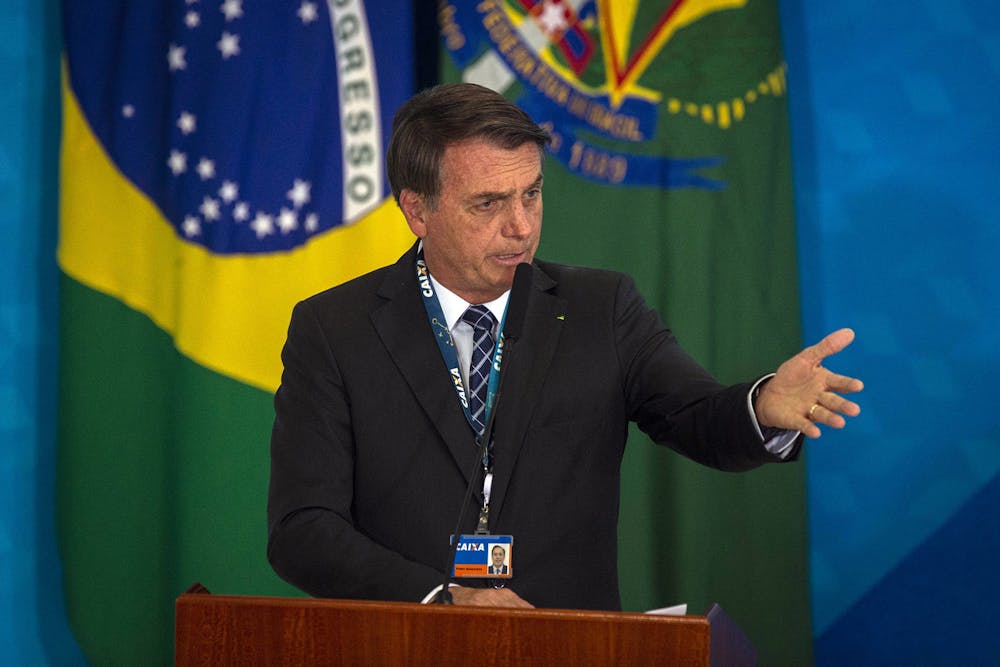Over the past several decades, the neoliberal paradigm has dominated global economics. The neoliberal period has been marked by privatization, supremacy of finance capital and the centrality of unaccountable global financial organizations such as the IMF and World Bank. The result has been skyrocketing inequality and the erosion of democratic institutions.
People around the world have taken note of the failure of these global systems and are showing elites their disgust. In the U.S., much of the economic anxiety was channeled into anti-establishment movements such as the right-wing movement behind Donald Trump. In the U.K., the Brexit vote was a repudiation of the undemocratic European Union driven in large part by misdirected anger.
Around the world this year, populations are staging their own rejections of the neoliberal order. Millions around the world have been engaged in protests in their own countries.
Puerto Rico
Over the summer, Puerto Rico, still reeling in the aftermath of Hurricane Maria, had a major upheaval that led to the resignation of the governor. The protests were ostensibly kicked off by the release of leaked chats in which the governor made many sexist and bigoted remarks. However, the roots of the dissatisfaction run deeper.
In 2016, the Obama administration appointed an unelected fiscal oversight management board to manage the economy. Known as “la junta,” the board cut funding for education, hospitals and other public services. This has done without the input of Puerto Ricans, half of whom live in poverty. Protesters over the summer included corruption and austerity as some of their grievances.
In the aftermath of the mobilization, many Puerto Ricans developed forms of people's assemblies in order to organize locally on the pressing issues. This is part of a political awakening that may come to reshape the island’s colonial relationship with the United States.
Ecuador
In Ecuador, neoliberal reforms have had a devastating effect. After the IMF lent the country $4.5 billion, the Ecuadorian government ended energy subsidies as part of the required austerity measures. This caused prices to rise for average Ecuadorians. These were part of changes reversing the anti-poverty policies of the previous president.
Angry citizens protested, first by disruptive transport strikes, then by student and worker demonstrations. At one point, hundreds of thousands participated in the protests. The government ended up negotiating a temporary peace; however, some observers believe that the situation is still volatile.
Lebanon
Lebanon is yet another country that has been hurt by its inclusion in the world trade system. For decades Lebanon has been going farther and farther into debt in order to avoid taxing the rich. Lebanese banks have also been getting cheap credit from the central banks and lending out to the middle class at exorbitant rates, pocketing the difference as profit. The result is a struggling middle class trapped by financial institutions.
U.S. sanctions and reduced tourism have contributed to the crisis. The country has turned to international financial institutions for help, asking for loans in return for implementing austerity measures which will further squeeze the middle class and poor. The supremacy of the banks and the dire economic conditions greatly angered the public. Protests were set off when they proposed a tax on texts and calls through WhatsApp. Hundreds of thousands took to the streets to demand a new government. After the government resigned, protesters continue to demand an overhaul of the political system.
Chile
In Chile, where citizens are living under the same constitution of former U.S.-backed dictator, General Augusto Pinochet, a wave of protests has taken the nation by storm. The country is one of the richest in the region. However, the economy is largely in private hands, thus ensuring that wealth flows upward and is distributed unevenly.
More than a month ago, the Santiago metro system hiked rates for public transit users. The rate hike came after the government announced a 10% increase in electricity costs. To a population long dissatisfied with current economic arrangements, the increases sparked outrage and demonstrations.
At one point, more than a million people were protesting in the streets. Protesters have been met with brutality. More than 20 people have been killed by the government during violent crackdowns, but the protests continue in full swing. They are calling for the resignation of President Sebastian Pinera as well a new constitution.
Brazil
In Brazil, far-right neofascist president Jair Bolsanaro is destroying the country through deregulation, corruption and violent rhetoric. Recently, a Brazilian court ruled that former president Luis Ignacio Lula de Silva be released from prison during his appeals process. He was wrongfully imprisoned while he was leading in the polls during a presidential election after Bolsanaro colluded with the judge and the prosecution to secure his own victory. The judge was awarded a key role in Bolsanaro’s administration.
Lula’s release could mean a new direction for the country. He has come back with a newfound vigor and many expect him to run in the 2022 elections. He is already planning to lead protests and mass mobilizations to fight the current regime. His popularity combined with a popular movement could help in the fight against Bolsanaro’s reactionary regime.
Around the world, we are watching public outrage at elites manifest in popular action. This is a welcome sign of the turning tide in the global fight to preserve and expand true democracy. Fighting and overcoming neoliberalism is the only hope for organized human existence in the face of the looming climate catastrophe. Here in the United States, the grassroots movement inspired in large part by Senator Bernie Sanders, D-Vt., could be our own chance to mount a challenge to the neoliberal order.





